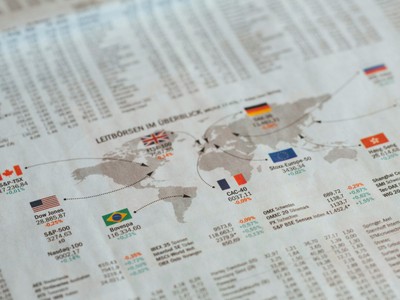Even the pound has staged a recovery after looking at one time as if parity with the euro was on the cards. Only the dollar remains unloved, though there are those who believe its downward trend since the Trump victory provides more of an opportunity than a threat.
Support for sterling came as the Bank of England indicated an interest rate rise before the end of the year might be necessary. With near full employment and inflation edging up, this seems reasonable, though there is little sign yet of wages pushing forward, even if the government looks close to abandoning the public sector pay cap. While a modest rise might be contemplated in, say, November, the Bank remains concerned that Brexit could damage our economy.
Indeed, a survey published by Reuters recently suggested a large number of jobs in banking and financial services could be lost from London once our departure from Europe becomes a reality. Frankfurt looks likely to be the biggest gainer, with Paris coming a close second. Of course, surveys, like opinion polls, do not have to be accurate and in my view New York is likely to be the main beneficiary from any loss of international financial status by London.
Central banks are likely to dominate sentiment as the days shorten. The Federal Reserve Bank’s Open Markets Committee is pronouncing on interest rates shortly, though a further change is not deemed likely. More important will be their projections on economic performance for the US and the extent to which they propose lightening the load of bonds they have acquired through quantitative easing. That a gradual tightening of monetary policy is taking place is a given, but the road to what used to pass for normality may take a while.
And the European Central Bank will also give some clues as to its approach to monetary policy, with the publication of the ECB Economic Bulletin. The euro has been a sought after currency in recent months, with an apparent strengthening of economic progress and a lessening of political risk. Of course, any upset in the imminent German elections could change perceptions, though the polls suggest Angela Merkel’s position is secure.
So we head deeper into autumn with investors still adopting a positive approach. Valuations are quite demanding, but geo-political tensions do seem to be abating. Much will depend on economic progress around the world continuing and finding some sort of solution to the North Korean impasse. I retain a cautious optimism, but investors everywhere need to keep their fingers crossed.



